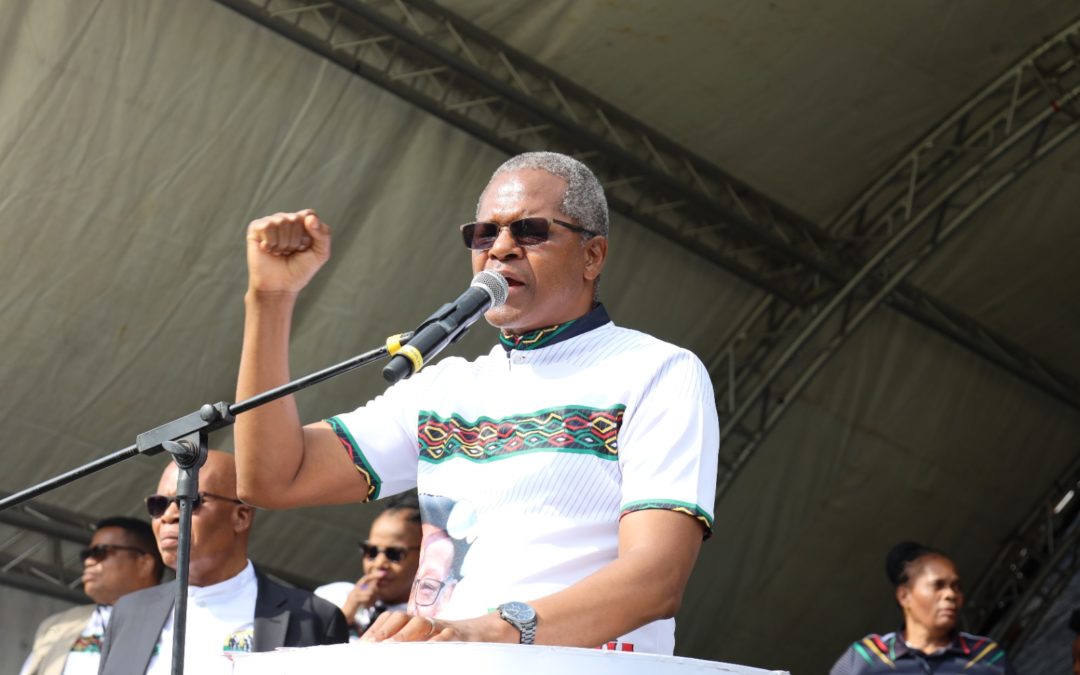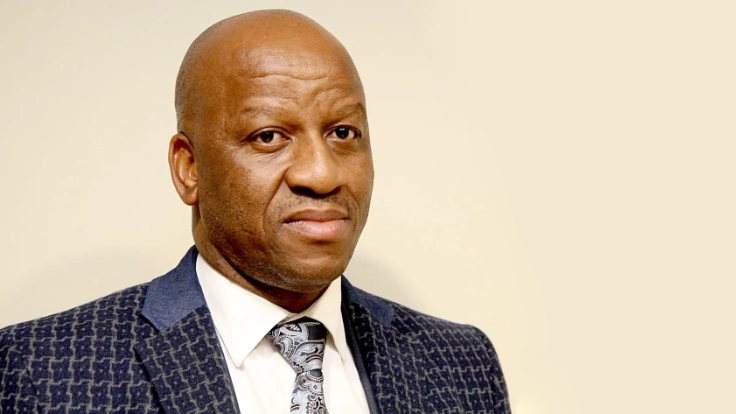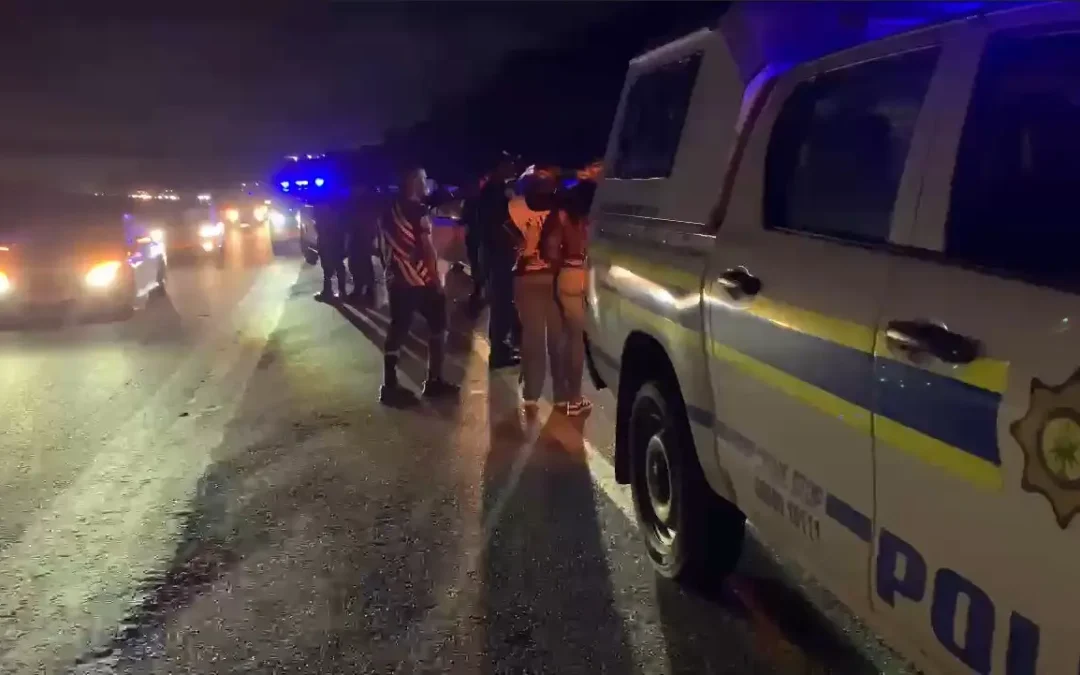BY
HON S MOODLEY IFP MPL
Hon Speaker,
Hon MEC’s,
Hon Members,
Before we even engage in any debate or dialogue about Economic development, we must ask ourselves what economic development is? Economic development can be defined as efforts that seek to improve the economic, political and social well-being and quality of life for citizens by creating and/or retaining jobs and supporting or growing incomes and the tax base. This means that more small businesses, initiatives and projects should be started in the province to reduce the escalating youth unemployment in the province which currently stands at more than 68%, an alarming statistic when job creation should be a priority.
The budget we are debating today has far reaching implications for all sectors of our province. I say this because, if properly managed, economic development in our province will create sustainable jobs and increased tourism to minimize youth unemployment and change the bleak economic outlook which is deleterious to every facet of society.
INVESTORS & ENVOYS
KwaZulu-Natal needs to be not only a good location for companies to conduct their business but a good location in which their senior decision makers can be based. Without them we will not attract the investment that is necessary for future employment and economic growth and hence be stuck in a downward trajectory. .
It is the duty of this department to make the environment conducive to attract investors. In light of the current economic situation, government and the private sector need to redouble their efforts to ensure investment in local manufacturing, and to protect local industries without alienating key regional and global trade partners. Infrastructure needs more investment with a target driven approach. Our challenge is to have a strategy based not only on consumption but on higher value production. We cannot rely on a trickle-down approach to growth.
We further call on our envoys to market KwaZulu-Natal positively in their respective countries and to adopt economic diplomacy to attract more investments into KwaZulu-Natal. Envoys as frontline representatives of South Africa, must rise above partisanship and position South Africa in particular KwaZulu-Natal to benefit immensely from the international endorsement of its political and socio-economic progress to improve the lives of KZN citizens. We urge them to focus on the promotion of trade and to facilitate investment flows into KwaZulu-Natal, particularly into key sectors such as energy, agriculture and agro-processing, ICT, infrastructure development and tourism.
TOURISM
We welcome the initiative by British Airways to have a direct flight between Durban and London. Tourism is an important sector of the KwaZulu-Natal economy. It has huge potential to generate economic growth and create jobs. In order to attract new tourism flows to KwaZulu-Natal, it is crucial to improve the competitiveness of the sector. There is a need to develop policies that harness benefits from tourism to empower rural communities, protect natural resources, and promote social cohesion and cultural identity.
The province has other key areas that could potentially provide available and untapped opportunities for small entrepreneurs.
The capacity at King Shaka International Airport should be increased to unlock the province’s potential, as the airport can handle wide-body aircraft in the form of direct flights from overseas countries not only London. Attracting daily direct flights from overseas to Durban should now be a priority for the province.
Also, KwaZulu Natal has two World Heritage Sites – Maloti-Drakensburg Park and iSimangaliso Wetland Park as well as game reserves, warm beaches and Zulu and Asian cultural heritage, with many attractions close to King Shaka International Airport. Small entrepreneurs should be given an opportunity to benefit economically and in doing so market our provinces potential to the world.
INDUSTRIAL ZONES & ECONOMIC DEVELOPMENT PROJECTS
We also note that the Department has two major projects which are funded by Infrastructure Transfer-Capital. These projects are Richards Bay Industrial Development Zone and the Dube Trade Port Cooperation with an allocation budget of R530.513 million in 2018/19, R560.222 million in 2019/20 and R591.034 million in 2020/21. These projects must create jobs and attract more investment as this is a catalyst of economic growth.
Programmes such as Operation Vula which will be launched in 2018/19 must benefit SMMEs. Furthermore, the Black Industrialist Programme and Operation Phakisa must also benefit people including those in rural areas.
To further boost industrialisation, we are calling for a harmonised regional procurement law to help compel both public and private entities to buy locally-made products. The key to doing business is finance and there is a need to assist our local producers through development finance and by creating necessary financial incentives to help them do their business. To this end, we are pleased to note that there is a refurbishment programme by Ithala with a view to improve accupancy levels, maximising rental collections and reducing bad debt. Ithala has been a challenge for some time now and needs to be prioritized.
SMMEs
As a country we are lagging behind in the empowerment of SMMEs. The IFP says this because a global entrepreneurship survey released last month (April) showed that entrepreneurial activity was at its highest level in the country in the past few years, but the perception that it was a back-up plan needed to change.
This was according to Mark Paper, Chief Operations Officer at Business Partners International, following the publication of the 2017/18 Global Entrepreneurship Monitor’s Report 1 which ranked South Africa’s entrepreneurial spirit at 42 out of 54 countries. This does not auger well and every effort must be placed into changing the negative financial outlook and this is indicative that as a country we have failed to empower SMMEs. In line with the Integrated Development Plan the IFP believes that SMMEs development is one of the key priority areas that have a potential of making a positive contribution towards economic development of the province.
SKILLS AND VACANT POSTS
We need an approach that focuses on creating better quality jobs while tackling low pay. Enhancing skills and the capabilities of our workforce, supporting innovation and enterprise and improving our export performance will all help to reduce the costs of poverty to the economy and the taxpayer.
This will be good for our economy over the long term, and it will be good for our people and our province. It is important that young people are equipped with necessary skills relevant to the modern economy to help access jobs in sectors which are likely to have high levels of vacancies. Areas with these high-level skills such as science and technology and advanced manufacturing are the key for future growth in KwaZulu-Natal.
In raising productivity, we still need to work to improve the productivity of our economy, create better jobs, develop our capacity and ability to exploit new ideas, engage with new markets, focus on production not just consumption, and work closely with the private sector and partners to cope with ongoing pressures of austerity.
We urge the MEC to ensure that all 96 critical vacant posts are filled because without enough employees, it is difficult for the department to execute its duties effectively.
JOB CREATION AND UNEMPLOYMENT
One will argue that government has made strides in tackling unemployment especially youth unemployment. This argument will be about the newly announced programme by President Cyril Ramaphosa of implementing Youth Employment Service. But as the IFP we believe that this is not something new because there have been similar schemes in the past and some are now underway. We have NYDA which is not visible in rural areas.
But all these schemes compound the frustration of long term unemployment and dead-end work.
Government has been unable to deliver workable formulas for job creation. Government remains stuck on the premise that it should be the main driver of economic growth through direct job creation. Not only is this unsustainable in the long run, but the kind of jobs created through public infrastructure development are temporary and offer low wages.
CEO’S
One of the greatest concerns is the exorbitant salaries commanded by CEO’s of government entities. This is one of the biggest drains of financial resources costing the department in the regions of 30 million annually. How do we possibly justify this when these entities are a perennial problem? Their underperformance, inefficiency and complete failure to deliver value added services is not worthy of the large sum of money paid out in remuneration to those in management. Had they been deserving of these handsome amounts, the department would not be bailing them out when they come knocking, begging bowl in hand, having failed dismally in their portfolio.
Rather than bailing them out, the department should look to employing competent individuals and steer clear of cadre deployment and nepotism which results in incompetent people employed in key positions.
INFORMAL TRADERS
In particular we wish the MEC to pay more focus on informal-traders, most of whom are black. We urge him also to consider how his department will help black business people whose businesses were burned down during those terrible times in our country and who are still harassed by the police.
We must raise the profile of the province with a focus on inward investment and trade opportunities. It is for this government to increase spending in a way that averts layoffs, create sustainable jobs and put money in the pockets of ordinary people.
While we support this budget, we call for prudent spending and commitment to end wasteful expenditure and corruption as radical economic transformation cannot succeed in a climate of gratuitous corruption and fiscal mismanagement.
I thank you





